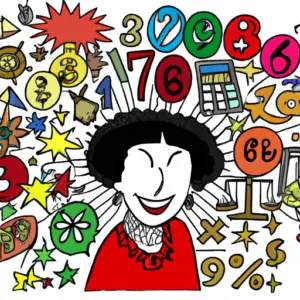Some articles on the blog contain affiliate links, which provide a small commission to help fund the blog. However, they won’t affect the price you pay or the blog’s independence. Read more here.

Do you want to be alone more often than not? Do you enjoy your own company more than that of others? If you answered yes to both questions, then it’s likely that you’re antisocial.
While there isn’t necessarily anything wrong with being antisocial, it can make it difficult to connect with others and can sometimes lead to feelings of loneliness. If you’re looking for ways to stop being antisocial, here are a few tips:
Get out of your comfort zone
One of the main reasons people become antisocial is because they’re afraid of new situations. They stay in their comfort zone, where they know what to expect.
If you want to stop being antisocial, it’s important to get out of your comfort zone. Push yourself to try new things and meet new people. It may be uncomfortable at first, but it’s worth it.
Be more positive
Another reason people become antisocial is because they focus on the negative aspects of social situations. They think about all the things that could go wrong instead of all the things that could go right.
If you want to stop being antisocial, it’s important to focus on the positive aspects of social situations. Think about all the fun you could have and the interesting people you could meet. When you have a positive outlook, social situations will seem less daunting.
Take baby steps
If you’re feeling really anxious about social situations, it’s okay to take baby steps. Start by attending small events or get-togethers with close friends or family members. Then, gradually start attending larger events with more people. Don’t do too much too soon or you’ll feel overwhelmed and discouraged.
Get out of the house
Sometimes, being around people can be overwhelming. If you’re feeling antisocial, try getting out of the house and spending time in nature. Take a walk, go for a hike, or just sit in the park and people watch.
Find a hobby
Doing something that you enjoy can help you feel more connected to others. Find a hobby that you’re passionate about and join a club or group that meets regularly.
Connect online
If you’re not ready to socialize in person, there are plenty of ways to connect with others online. Join an online forum or chat room where you can discuss your interests with like-minded people.
Attempt to engage with others
If you’re feeling antisocial, it’s important to engage with others. This can be as simple as striking up a conversation with a coworker or neighbor, or attending social events, even if you don’t feel like it. The more you force yourself to interact with others, the easier it will become.
Attempt to say yes more often
Say yes more often. This doesn’t mean that you have to attend every single event you’re invited to, but it means attempting to attend more events than you currently are.
Find common ground
One of the best ways to connect with someone is to find common ground. When you have things in common with someone, it’s easier to find things to talk about and bond with. So, if you’re struggling to connect with others, try finding things that you have in common with them.
Be genuine
People can see through fake attempts at connection, so if you want to stop being antisocial, it’s important to be genuine in your interactions with others. Be interested in what they have to say and let your conversations flow naturally.
Don’t compare yourself to others
It’s easy to feel you’re not good enough when you compare yourself to others, but everyone is different and has their own unique set of skills and qualities. Instead of comparing yourself to others, focus on being the best version of yourself that you can be.
Accept that some people just aren’t worth your time
There are some people who just aren’t worth your time and energy, so don’t force yourself to interact with them if you don’t want to. There are plenty of other people out there who will be worth your time and who you’ll actually enjoy spending time with.
Join a club or group
Another great way to stop being antisocial is to join a club or group. This will force you to interact with other people regularly, which will help you become more social. There are clubs and groups for many interests, so there’s sure to be one that’s perfect for you.
Volunteer
Volunteering is a great way to meet new people and make friends. Not only will you be helping others, but you’ll also be getting out of your own head and interacting with the world around you. Volunteering is a win-win situation, so definitely consider it if you’re looking for ways to stop being antisocial.
Go out and talk to people
One of the best ways to stop being antisocial is simply to go out and talk to people. Talk to the cashier at the grocery store, strike up a conversation with someone in line at the coffee shop, or say hi to your neighbor when you see them walking by. Just by attempting to talk to people, you’ll find that it becomes easier and more natural.
Don’t be afraid to be yourself
Don’t be afraid to be yourself when you’re trying to stop being antisocial. It can be tempting to put on a persona that you think will make you more likable, but ultimately, it’s much better to just be yourself. People will appreciate your authenticity, and you’ll be more likely to make lasting connections if you’re genuine from the start.
Seek professional help
If you’ve tried these tips and still struggle, it may be time to seek professional help. Talk to your doctor or a mental health professional about your feelings and get the help you need to feel better.
Conclusion
If you’re struggling to connect with others, consider using these tips to stop being antisocial. Many of them are relatively simple, but they can make a world of difference.





























